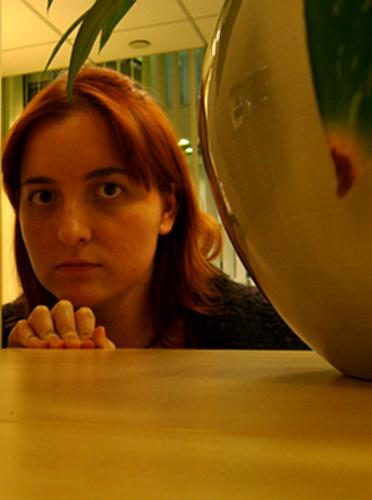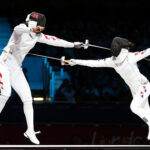We can easily forgive a child who is afraid of the dark; the real tragedy of life is when men are afraid of the light. – Plato
 What does that mean?
What does that mean?
Children being afraid of the dark, that is a phase most of them go through. However, when grownups are afraid of living their lives in the open light, that is sad. I take the phrase “afraid of the light” to mean that they are hiding in a dark place, afraid to come out and be seen.
To me, this implies not hiding due to a physical deformity (like the titular Hunchback of Notre Dame), but hiding due to fear. Fear of being seen, fear of speaking or a fear of doing something and being disliked because of it. To some, it is better to hide and have nothing than to try something and risk embarrassment.
This sounds kind of like a case of terminal geeky-ness, or an uber-wall-flower. You have probably seen people who have gone through a mild phase like this. I was once that shy, but I grew out of it.
Why is strength important?
Strength is a word with many applications. Here, I intend it to mean the strength of will, strength of character, and the strength of self-respect necessary to step out of the shadows and into the light.
This strength is also a form of permission to yourself, permission to fail, permission to (occasionally) make a fool of yourself. It is also the strength to get back up after failure or foolishness and remain in the light, and not scamper back to the safety of the darkness.
Such strength is available to all of us. Some might call it will-power, others might call it learning to live with the pain of rejection. Some might call it courage, still others might pride. Whatever it is called, it is what separates the mice (scampering in the safety of the dark) from the men (living in the light).
Where can I apply this in my life?
We all have a little fear in our lives. Those who have banished fear either live well within the limits of safety, or are reckless and beyond thoughtfulness. Fear helps keep us from doing terminally stupid things. It also helps us define our limits.
We are all strong in some aspects of our lives, and timid in others. For example, I’ll take any physical challenge without much hesitation. I have done things like that all my life. Climbing, jumping, tumbling, running and falling are second nature. Climb to the top of a telephone pole and jump to a trapeze, no problem. Been there, done that (it was fun!).
However, put me in a room full of people, and you’ll find me in the corner, behind the potted plant. That’s somewhere where I am very meek. I have never have been a people person, although I am getting better at tolerating them. I prefer the company of a few close friends than a party full of people of whom I have made an acquiescence.
How about you? Where are you strong? The more interesting question, and more apropos to the quote, is where are you timid? Are you shy around new people, or is that a strength of yours? Grab some paper and write down a few aspects of your life where you would like to be stronger.
Choose one of them and take a few moments to write down where you would be if you were strong in this part of your life. You know where you are and you just wrote down where you want to go. Now all you have to do is fill in the steps in-between.
Come up with an image of yourself when you are halfway there. What would you have to do, how would you have to act to be “there”? Take a moment to think about you at the halfway point. Does it feel good being stronger in this aspect of your life?
What would you have to do to get to the halfway point? People skills, like climbing skills, require practice and repetition to get to be proficient.
For me, I started just with saying “hi” to people at work or on the street, in stores or where ever I saw them. Then I worked on eye contact and a smile. Slowly I worked up to starting conversations by asking a question or complimenting them. What will you be doing over the next few weeks as you move towards the halfway point?
As you get better at being strong in this aspect of your life, keep track of how things are going, and make adjustments. You may find that saying “hi” is easy, but the eye contact is a real problem. You might have to break the eye contact into smaller steps to climb that challenge. Just keep after it.
Once you are at the halfway point, it’s time to go the rest of the way. Simply repeat the steps for getting to halfway and get busy. If you find that what you thought was halfway was more like a quarter, just keep moving forward, don’t get frustrated or give up.
Later, you can start working on other aspects of your life, as you see the need or opportunity. Some think of this as an onerous exercise, like doing 40 push-ups. I prefer to think of it as an opportunity to get better at something, whether it be better physical shape or better social shape. Your attitude towards this will be a big portion of how easy it is to stay motivated. Don’t sabotage yourself!
We all have parts of ourselves that prefer the calm quiet and darkness of living away from the light. But we become better people (and stronger as well) as we live more and more in the light. Just be sure to bring your sun block! 8)
From: Twitter, undocumented feed (my bad)
confirmed at : http://www.brainyquote.com/quotes/quotes/p/plato121792.html
Photo by Sarah G…







Plato never wrote that. Not only is it not to be found in any of Plato’s writings, it also cannot be found in any published work anywhere until recent years. If it really were a quotation by Plato, then some author in the recorded literature of the last several centuries would have mentioned that quote, but they did not.
That quotation has appeared only recently, so we know it is of modern manufacture. The sentiment isn’t new, certainly: it was probably influenced by much earlier writers. For example, the ancient Roman Seneca, in his work on “Morals,” quoted an early Roman writer, Lucretius (who wrote about the year 50 B.C.), as saying “we are as much afraid in the light, as children in the dark.” A similar sentiment can be seen the later-written Christian Gospels (John 3:20 – “Everyone who does evil hates the light, and will not come into the light for fear that their deeds will be exposed.”)
So please stop saying that Plato wrote that. Saying “you can’t prove that he didn’t” doesn’t cut it. Since the quotation does not appear in any published work until quite recently, whoever first wrote it in recent years, unless he had traveled back in time and heard it from Plato directly, must have made it up himself.
Have you even bothered to read the comments section? This has already been addressed, and quite thoroughly.
Specifically to your points:
1) In your opening sentence, you make an equally silly claim. Unless you knew Plato, and personally asked him if he ever did, and received confirmation that he did not (see your last paragraph for your comment on time travel). Some of Plato’s work has not survived to the present day, so your assertion that he never wrote it cannot be proven any more than it can be proven that he did, but we just lost it.
2) That someone else said so later in time does not disprove that someone said it earlier in time. It only proves parallel thinking or some flavor of plagiarism has occured.
3) If you have even a passing familiarity with the quality of the translations of the late 1700s through the 1800s, you would realize that nearly any saying can be substantiated as having been said by nearly anyone, if you can find the right book, as a great deal of poetic license was taken in the translations of that time period.
Your closing paragraph really needs work. I’m getting tired of people presenting an argument that I don’t have any basis for doing something, and then do the exact same thing themselves. And time travel. Really?
thanks..
there’s one more quote.. “the weak can never forgive, forgiveness is the attribute of the strong”
can we analyse it in following way:
employment lends strength to man/woman.. when a person is unemployed; to forgive becomes difficult, while employment boosts confidence.. thus transforming man/woman..
i’ve observed this change in many ppl.. i was wondering if such micro level examples fit the bill..
Thanks for stopping by, and for leaving such an interesting response.
That is an interesting way to take the quote, and yes, I believe it works within the framework of the quote as I understand it. That is what is so interesting about quotes and people from different parts of the world, we all bring our own experiences and views to the table. Such sharing can only serve to enrich us all.
Well thanks ma’am. Thanks for supportingmy views
Hello.. in this quote can we light with knowledge or enlightenment?? for e.g. terrorists are apprehensive of this light; and hence end up killing innocent men/women.. They stay in dark and fear exposure of any kind..
Thanks for stopping by and for leaving a comment.
I hadn’t thought of it that way, but I suppose (if I understand you correctly) that it could be taken that way.
It may have many meanings.
Fear of being your self.
Fear of talking
Fear of expressing yourself.
Most likely, it is just down to the first one…Fear of being yourself.
That’s the problem of modern society – follow the leader, herd mentality. My theory is – it’s dynamics of nature and humans are just animals. Animals, with few exceptions, live in groups but their leaders demand strongest members because the herd is as strong as it weakest member.
Humans do the exact opposite.
I would argue that the herd was as week as the second or third weakest member. The weakest are the ones the predators go after, increasing the strength of the herd.
That said, there is much wisdom in what you say. Fear is the mind-killer. It cuts us off from even considering doing something, killing it before we get a chance to start. Conformity is a strong pressure, even for non-conformists. Think about that for a moment or two…
Thanks for stopping by and contributing to the conversation. I hope to hear from you again.
cool. I only read what it means like in the first sentence
Thanks for reading at least the first sentence. 8)
I’m glad you liked the post enough to leave a comment. I hope it means something to you, and I hope to hear from you again.
are you sure that is a real plato quote? What is the reference for it?
Nope, I’m not sure at all. I have yet to read everything Plato ever wrote. But mind you, there are plenty of Plato’s words that are lost to us as well, so I suppose one could always attribute it to a lost work. I cannot prove it is, yet you cannot prove it is not. I’ll let the true philosophers debate that one. I have more important things to do. 8)
This quote is attributed to him at some of the finest quote databases on the internet, though. That should count for something! 8)
What is important to me isn’t who said (or is alleged to have said) it, but the usefulness and applicability of the quote. What can we, in today’s world, take from the best words of philosophers and common people. I pick phrases that intrigue me or which move me in some way, and write a post about them. Hope that helps.
This isn’t a Plato quote. And I don’t know if there is such a thing as “the finest quote databases.” Also, if you do a search on a Plato database, you would not find this quote anywhere in his works. The argument you propose suggest that if ~p, then q. This is problematic. It reminds me of the South Park Thanksgiving episode where they stated “they never said there *wasn’t* ghosts at the first thanksgiving, so there most have been ghosts at the first thanksgiving.” Ha ha…
Nonetheless, the quote does resonate with Plato’s thoughts; specifically, the allegory of the cave. It is a good quote, but I would credit it as ‘anonymous’, as after I have researched it the true author has not been placed.
Sadly, there is no “finest quotes database” available. The closest I can find is wikiquote.org, and even then, they don’t always have all the quotes, much less all the different translations.
Unfortunately, I do these posts one a day, so I don’t have the time to do as thorough a search as you appear to have done. A great number of the quotes out there are unattributed at best. However, for the purposes of this blog, it is the content of the quote, not the author, which is of importance.
I try to get it right, but I am not always able to do so. Thanks for the info, and I hope you read some of the other posts on my blog. Until next time, stay strong!